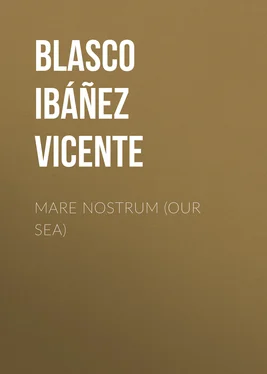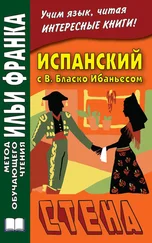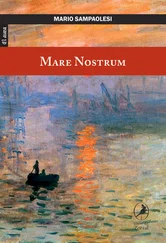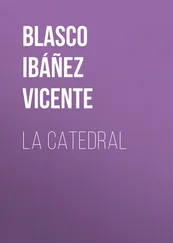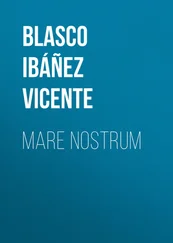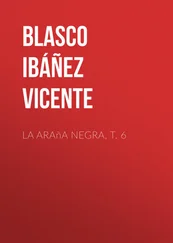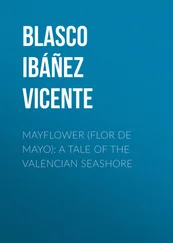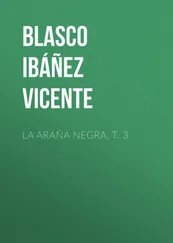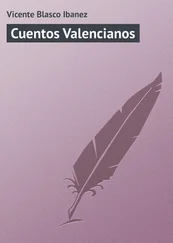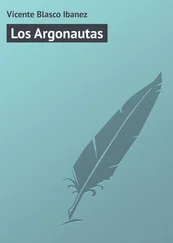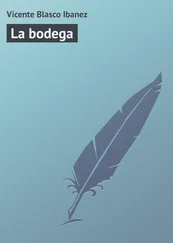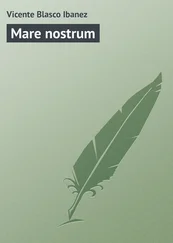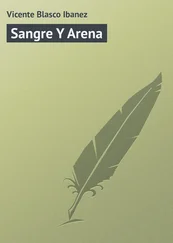Vicente Blasco Ibáñez - Mare Nostrum (Our Sea)
Здесь есть возможность читать онлайн «Vicente Blasco Ibáñez - Mare Nostrum (Our Sea)» — ознакомительный отрывок электронной книги совершенно бесплатно, а после прочтения отрывка купить полную версию. В некоторых случаях можно слушать аудио, скачать через торрент в формате fb2 и присутствует краткое содержание. Жанр: foreign_prose, foreign_antique, на английском языке. Описание произведения, (предисловие) а так же отзывы посетителей доступны на портале библиотеки ЛибКат.
- Название:Mare Nostrum (Our Sea)
- Автор:
- Жанр:
- Год:неизвестен
- ISBN:нет данных
- Рейтинг книги:5 / 5. Голосов: 1
-
Избранное:Добавить в избранное
- Отзывы:
-
Ваша оценка:
- 100
- 1
- 2
- 3
- 4
- 5
Mare Nostrum (Our Sea): краткое содержание, описание и аннотация
Предлагаем к чтению аннотацию, описание, краткое содержание или предисловие (зависит от того, что написал сам автор книги «Mare Nostrum (Our Sea)»). Если вы не нашли необходимую информацию о книге — напишите в комментариях, мы постараемся отыскать её.
Mare Nostrum (Our Sea) — читать онлайн ознакомительный отрывок
Ниже представлен текст книги, разбитый по страницам. Система сохранения места последней прочитанной страницы, позволяет с удобством читать онлайн бесплатно книгу «Mare Nostrum (Our Sea)», без необходимости каждый раз заново искать на чём Вы остановились. Поставьте закладку, и сможете в любой момент перейти на страницу, на которой закончили чтение.
Интервал:
Закладка:
Boiled apart ( abanda ) each grain was full of the succulent broth of the stew-pot. It was a rice dish that contained within it the concentration of all the sustenance of the sea. As though he were performing a liturgical ceremony, the chef would go around delivering half a lemon to each one of those seated at the table. The rice should only be eaten after moistening it with this perfumed dew which called to mind the image of an oriental garden. Only the unfortunate beings who lived inland were ignorant of this exquisite confection, calling any mess of rice a Valencian rice dish.
Ulysses would humor the cook's notions, carrying the first spoonful to his mouth with a questioning glance…. Then he would smile, giving himself up to gastric intoxication. "Magnificent, Uncle Caragol!" His good humor made him affirm that only the gods should be nourished with rice abanda in their abodes on Mount Olympus. He had read that in books. And Caragol, divining great praise in all this, would gravely reply, "That is so, my captain." Toni and the other officers by this time would be chewing away with heads down, only interrupting their feast to regret that the old Ganymede should have skimped them when measuring the ambrosia.
In his estimation, oil was as precious as rice. In the time of their money-losing navigation, when the captain was making special efforts at economy, Caragol used to keep an especially sharp eye on the great oil bottles in his galley, for he suspected that the cabin boys and the young seamen appropriated it to dress their hair when they wanted to play the dandy, using the oil as a pomade. Every head that put itself within reach of his disturbed glance he grasped between his arms, raising it to his nose. The slightest perfume of olive oil would arouse his wrath. "Ah, you thief!"… And down would fall his enormous hand, soft and heavy as a fencing gauntlet.
Ulysses believed him quite capable of climbing the bridge, and declaring that navigation could not go on because of his having exhausted the leathern bottles of amethyst-colored liquid proceeding from the Sierra de Espadán.
In the ports, his short-sighted eyes recognized immediately the nationality of the boats anchored on both sides of the Mare Nostrum . His nose would sniff the air sadly. "Nothing!…" They were unsavory barks, barks from the North that prepared their dinner with lard or butter,—Protestant barks, perhaps.
Sometimes he would sneak along the gunwale, following an intoxicating trail until he planted himself in front of the galley of the neighboring boat, breathing in its rich perfume. "Hello, brothers!" Impossible to fool him, they were probably Spaniards and, if not, they were from Genoa or Naples,—in short, were compatriots accustomed to live and eat in all latitudes just as though they were in their own little inland sea. Soon they would begin a speech in the Mediterranean idiom, a mixture of Spanish, Provençal and Italian, invented by the hybrid peoples of the African coast from Egypt to Morocco. Sometimes they would send each other presents, like those that are exchanged between tribes,—fruits from distant countries. At other times, suddenly inimical, without knowing why, they would shake their fists over the railing, yelling insults at each other in which, between every two or three words, would appear the names of the Virgin and her holy Son.
This was the signal for Uncle Caragol, religious soul, to return in haughty silence to his galley. Toni, the mate, used to make fun of his devout enthusiasm. On the other hand, the foremast hands, materialistic and gluttonous, used to listen to him with deference, because he was the one who doled out the wine and the choicest tid-bits. The old man used to speak to them of the Cristo del Grao , whose pictures occupied the most prominent site in the kitchen, and they would all listen as to a new tale, to the story of the arrival by sea of the sacred image, mounted upon a ladder in a boat that had dissolved in smoke after discharging its miraculous cargo.
This had been when the Grao was no more than a group of huts far from the walls of Valencia and threatened by the raids of the Moorish pirates. For many years Caragol, barefooted, had carried this sacred ladder on his shoulder on the day of the fiesta. Now other men of the sea were enjoying such honor and he, old and half-blind, would be waiting among the public for the procession to pass in order that he might throw himself upon the enormous relic, touching his clothes to the wood.
All his outer garments were sanctified by this contact. In reality they weren't very many, since he usually strolled about the boat very lightly clad, with the immodesty of a man who sees poorly and considers himself above human preoccupations.
A shirt with the tail always floating, and a pair of pantaloons of dirty cotton or yellow flannel, according to the season, constituted his entire outfit. The bosom of the shirt was open on all occasions, leaving visible a thatch of white hair. The pantaloons were fastened together with a single button. A palm leaf hat always covered his head even when he was working among his cooking pots.
The Mare Nostrum could not be shipwrecked nor suffer any harm while it carried him aboard. In the days of tempest, when waves were sweeping the deck from prow to poop, and the sailors were treading warily, fearing that a heavy sea might carry them overboard, Caragol would stick his head out through the door of the galley, scorning a danger which he could not see.
The great water-spouts would pass over him, even putting out his fires, but only increasing his faith. "Courage, boys! Courage, lads!" The Cristo del Grao had special charge of them and nothing bad could happen to the ship… Some of the seamen were silent, while others said this and that about the image without arousing the indignation of the old devotee. God, who sends dangers to the men of the sea, knows that their bad words lack malice.
His religiosity extended to the very deeps. He did not wish to say anything about the ocean fish, for they inspired him with the same indifference as those cold and unperfumed boats that were ignorant of olive oil, and all that was cooked with "pomade." They must be heretics.
He was better acquainted with the fish of the Mediterranean and even came to believe that they must be good Catholics, since in their own way they proclaimed the glory of God. Standing near the taffrail on torrid evenings in the tropics, he would recount, in honor of the inhabitants of his distant sea, the portentous miracle which had taken place in the glen of Alboraya.
A priest was one day fording on horseback the mouth of a river in order to carry the eucharist to a dying person, when his beast stumbled and the ciborium, falling open, the Hosts fell out and were carried off by the current. From that time on, mysterious lights glowed every night on the water, and at sunrise a swarm of little fishes would come to range themselves opposite the glen, their heads emerging from the water, in order to show the Host which each one of them was carrying in his mouth. In vain the fishermen wished to take them away from them. They fled to the inland sea with their treasures. Only when the clergy, with cross erect and with the same priest, fell on their knees in the glen did they decide to approach; and one after the other deposited his Host in the ciborium, retiring then from wave to wave, gracefully waggling their little tails.
In spite of the vague hope for a jug of choice wine that was animating most of his hearers, a murmur of incredulity always arose at the end of this tale. The devout Caragol then became as wrathful and foul-mouthed as a prophet of old when he considered his faith in danger. "Who was that son of a flea?… Who was that son of a flea daring to doubt what I myself have seen?…" And what he had seen was the fiesta of the Peixet that was celebrated every year, simply listening to most learned men discoursing about the miracle in a commemorative chapel built on the banks of the glen.
Читать дальшеИнтервал:
Закладка:
Похожие книги на «Mare Nostrum (Our Sea)»
Представляем Вашему вниманию похожие книги на «Mare Nostrum (Our Sea)» списком для выбора. Мы отобрали схожую по названию и смыслу литературу в надежде предоставить читателям больше вариантов отыскать новые, интересные, ещё непрочитанные произведения.
Обсуждение, отзывы о книге «Mare Nostrum (Our Sea)» и просто собственные мнения читателей. Оставьте ваши комментарии, напишите, что Вы думаете о произведении, его смысле или главных героях. Укажите что конкретно понравилось, а что нет, и почему Вы так считаете.
